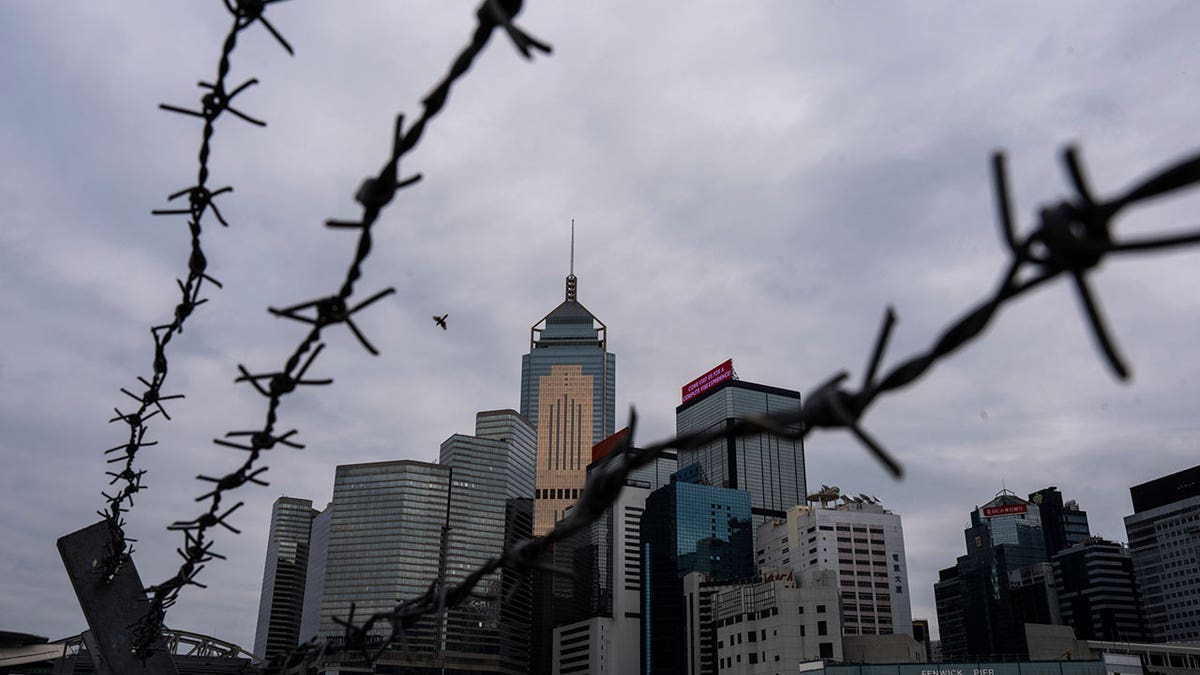- Hong Kong prisoners convicted of serious national security crimes are unlikely to be granted early release under the new national security law.
- Inmates previously could have their sentences reduced by up to one-third for good conduct, but this provision has been altered by the new law.
- Hong Kong’s chief executive, John Lee, voiced at a press briefing the importance of residents complying with the law.
Hong Kong’s leader said Tuesday that prisoners convicted for serious national security crimes would not likely be granted early release under the tightened rules of a new national security law, signaling a hardening government stance against jailed political activists.
Chief Executive John Lee said the Safeguarding National Security Ordinance stipulates that people found guilty of endangering national security must not be granted remission unless the commissioner of correctional services believes the move would not be a national security risk. This also applies to inmates who received sentences before the new law was introduced last Saturday, Lee said.
Previously, inmates could have their prison sentences reduced by up to one-third for good conduct under the city’s prison rules, provided they were serving terms longer than one month.
HONG KONG LAWMAKERS UNANIMOUSLY PASS CONTROVERSIAL SECURITY LAW, GRANTING GOVERNMENT POWER TO CURB DISSENT
At a weekly press briefing, Lee urged residents not to defy the law.

Hong Kong’s leader said on Tuesday that prisoners convicted for serious national security crimes would not likely be granted early release under the tightened rules of a new national security law, signaling a hardening government stance against jailed political activists. (AP Photo/Louise Delmotte, File)
“We need to make sure everyone understands that if someone was convicted of serious national security offenses, normally there would not be remission of sentence,” he said.
Lee’s comments came after local media, including the South China Morning Post, reported that the early release of activist Ma Chun-man, which had been scheduled for Monday, was blocked under the new national security law. The remission had been granted due to his good conduct and the blockage was the first of its kind, according to the reports, which cited unnamed sources.
Ma’s friend, who spoke on the condition of anonymity due to fear of government retribution, told The Associated Press that the release date of Ma had been pushed back due to the new law.
The revised practice is expected to affect other activists who are jailed or undergoing trials under a similar sweeping security law imposed by Beijing four years ago to quell massive anti-government protests in 2019.
Ma was serving a five-year term for inciting secession under the 2020 security law. He was convicted in 2021 for repeatedly advocating for Hong Kong’s independence.
CLICK HERE TO GET THE FOX NEWS APP
At the press briefing, Lee did not confirm Ma’s case when asked about it but said the commissioner handles cases in accordance with the law. He said anyone who disagrees with the commissioner’s handling of a case can seek to resolve the matter through legal means.
In an emailed response to the AP, the correctional services department refused to comment on individual cases. But it said the commissioner would consider all relevant factors, including inmates’ statements, on a case-by-case basis to ensure all cases are handled fairly.
The new national security law was unanimously passed in an expedited legislative process last week, deepening worries over a further erosion of the city’s freedoms. Western governments, including the United States, have criticized the legislation.
As of Tuesday, authorities have not announced any arrests under the new law, which they say balances security with safeguarding rights and freedoms. They also say the legislation was needed to keep the city safe against “potential sabotage” and “undercurrents that try to create troubles.”






